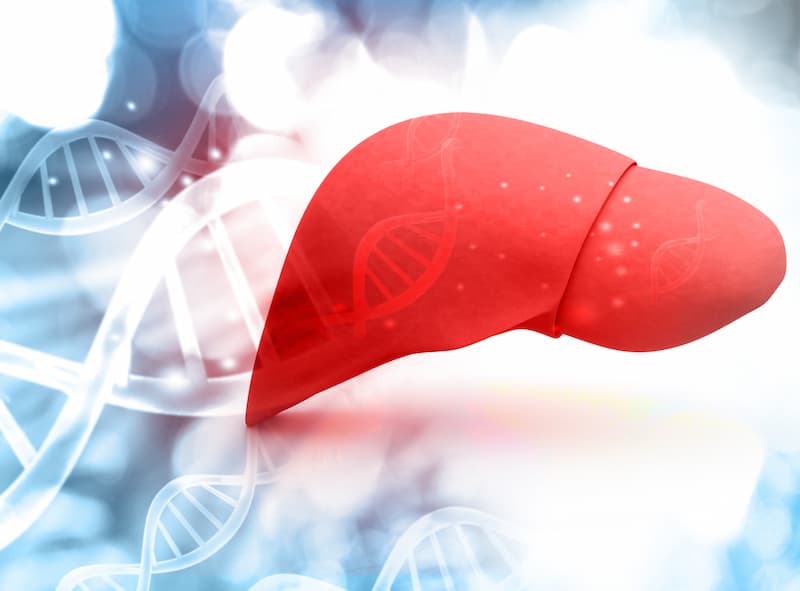Real-World Data Show Activity With Ivosidenib in IDH1+ Cholangiocarcinoma
Data from the phase 3b ProvIDHe trial show "reassuringly good" PFS and OS outcomes with ivosidenib in a real-world cohort.
“The [median] PFS and OS are reassuringly good and confirm and support the original dataset from [the phase 3] ClarIDHy study [NCT02989857]," according to study author John Bridgewater, MRCP, PhD, FRCP.

Real-world data from the phase 3b ProvIDHe study (NCT05876754) demonstrated preliminary activity in patients with cholangiocarcinoma harboring IDH1 mutations who received Ivosidenib (Tibsovo), according to a presentation at the 2025 ESMO Gastrointestinal Cancers Congress.1
Initial data from ProvIDHe revealed that the median progression-free survival (PFS) in the full analysis set (n = 262) was 4.7 months (95% CI, 3.5-5.7). The 3-, 6-, and 12-month PFS rates were 64.2%, 40.1%, and 28.2%, respectively. Additionally, the median overall survival (OS) was 15.5 months (95% CI, 12.7-not evaluable [NE]). The 3-, 6-, and 12-month OS rates were 88.3%, 80.3%, and 60.0%, respectively.
“This interim analysis gave us the preliminary outcomes of the ProvIDHe study, which [enrolled] a phase 3b, real-world population,” John Bridgewater, MRCP, PhD, FRCP, said during the presentation. “The [median] PFS and OS are reassuringly good and confirm and support the original dataset from [the phase 3] ClarIDHy study [NCT02989857].”
Bridgewater is a clinical professor in the Research Department of Haematology at University College London in the United Kingdom.
In August 2021, the FDA approved ivosidenib for the treatment of adult patients with previously treated, locally advanced or metastatic cholangiocarcinoma harboring an IDH1 mutation as detected by an FDA-approved test.2 The regulatory decision was supported by data from ClarIDHy, which demonstrated that ivosidenib led to a 63% reduction in the risk of death or disease progression vs placebo (HR, 0.37; 95% CI, 0.25-0.54; P < .0001).
Examining the ProvIDHe Study Design and Baseline Characteristics
ProvIDHe was an open-label, international, early-access study of ivosidenib for the treatment of adult patients with locally advanced or metastatic IDH1-mutated cholangiocarcinoma who had received at least 1 prior line of therapy.1,3 Patients also needed to have an ECOG performance status of 0 or 1; a QTcF interval of less than 450 milliseconds; and adequate bone marrow, hepatic, and renal function.1
Patients received oral ivosidenib at 500 mg once daily in 28-day treatment cycles. Treatment continued until unacceptable toxicity or when ivosidenib became accessible via prescription. The study enrolled a total of 285 patients across 80 sites in 15 countries.
The primary outcomes included safety, number of grade 2 or worse QT prolongation events during electrocardiogram, change in ECOG performance status, change in laboratory values, and vital sign outcomes.3 Secondary outcomes included PFS, OS, duration of response (DOR), time to response, and quality of life measures.
At baseline, the median age was 62.0 years (range, 31-90).1 Most patients were female (56.9%), had an ECOG performance status of 1 (51.9%), had an intrahepatic cholangiocarcinoma primary site (89.7%), and had advanced or metastatic disease (74.8%).
The median number of prior lines of therapy for advanced or metastatic disease was 2 (range, 1-6); patients had received 1 (39.3%), 2 (27.1%), or more than 2 (22.9%) prior lines. Previous treatments included gemcitabine monotherapy (8.4%), FOLFIRI (5-fluorouracil, leucovorin, and irinotecan; 10.3%), FOLFOX (leucovorin, fluorouracil, and oxaliplatin; 17.6%), cisplatin-gemcitabine plus immunotherapy (42%), cisplatin-gemcitabine (40.1%), and other regimens (18.7%).
Additional Efficacy Results
Additional findings from ProvIDHe revealed that the ORR per RECIST 1.1 criteria was 5.7% (95% CI, 3.2%-9.3%); all responses were partial. Patients experienced stable disease at a rate of 45.8% and disease progression at a rate of 23.7%. The median DOR was 10.1 months (95% CI, 3.0-NE), and the disease control rate was 51.5%.
“[ProvIDHe] is ongoing, and more data will be released [in the future],” Bridgewater said in conclusion.
Disclosures: Bridgewater reported receiving speaker fees from Incyte, Servier, AstraZeneca, and BMS. He also reported consultancy roles with AstraZeneca, Incyte, Taiho, Beigene, and Jazz, as well as receiving research funding from Incyte.
References
- Bridgewater JA, Gardini AC, Wilmink H, et al. Preliminary efficacy outcomes of ivosidenib in patients with IDH1-mutated cholangiocarcinoma (mIDH1 CCA): initial results from the phase IIIb ProvIDHe study. Presented at: ESMO Gastrointestinal Cancers Congress 2025; July 2-5, 2025; Barcelona, Spain. Abstract 262MO.
- FDA approves ivosidenib for advanced or metastatic cholangiocarcinoma. FDA. Updated February 1, 2022. Accessed July 7, 2025. https://www.fda.gov/drugs/resources-information-approved-drugs/fda-approves-ivosidenib-advanced-or-metastatic-cholangiocarcinoma
- An early access study of ivosidenib in patients with a pretreated locally advanced or metastatic cholangiocarcinoma (ProvIDHe). ClinicalTrials.gov. Updated June 4, 2025. Accessed July 7, 2025. https://clinicaltrials.gov/study/NCT05876754